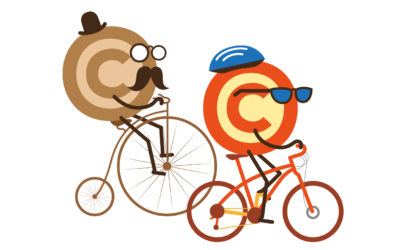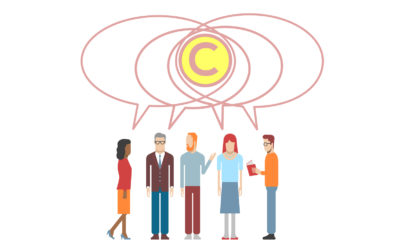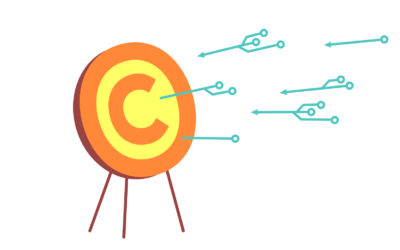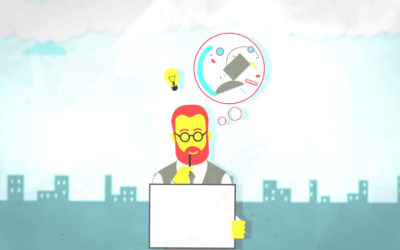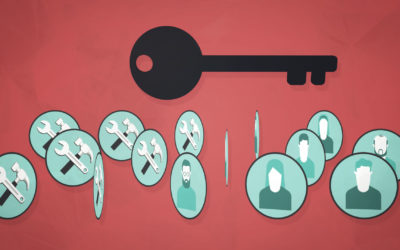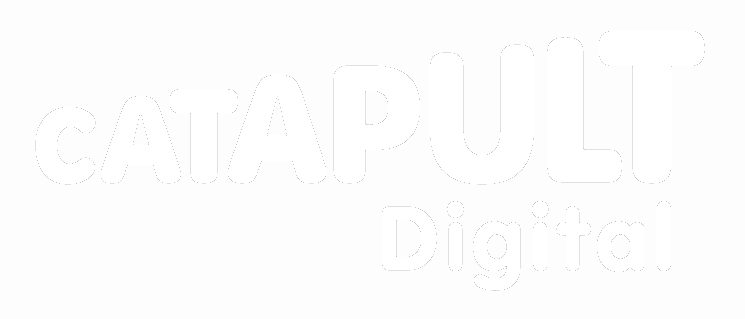Illustration: Davide Bonazzi
What are the wider social issues relating to copyright regulation?
1. Introduction
2. Digital Society
3. Fundamental Rights
See also:
– Case Study: Parody
– Task
1. Introduction
Prompt One established that the ultimate purpose of copyright is the creation and spread of knowledge. Prompt Two discussed the arguments supporting and the arguments criticising copyright regulation. Prompt Three considered the stakeholder perspectives on the effectiveness of copyright regulation in the digital age. In this final prompt we consider the wider social issues relating to copyright regulation.
Firstly, we will look at the development of digital society. Secondly, we will consider the impact of copyright on other important societal rights such as privacy and freedom of speech.
2. The development of digital society
The development of new technologies has had an impact on the way in which people act in society and how they interact with works protected by copyright.
We now live in a time that is referred to as the “digital society”. This means that people are
growing up in a world of advanced technology and adapting their behaviours accordingly. This has raised questions for copyright regulation and challenged the credibility of copyright in digital society.
“There is a whole generation who is using copyrighted material in a digital environment only. It is difficult to make what they may regard as opaque and outdated legislation plausible to young people in particular today.” (Academic)
“Whenever copyright makes the general news it never seems to be as part of an up-beat message and there is very little information on why copyright is of importance to all members of society.” (Academic)
Technology has changed the way in which people use copyright works. Copyright regulation must adapt appropriately to allow the public to be creative in their uses whilst still providing copyright owners with protection.
“Rights owners have to recognise that a system that was created in an age of print media needs to adapt radically for an age of digital, global communication, and that they too need to adapt their own expectations and methods of working.” (Archive Expert)
“User Generated Content positions are diverging, the main thing it proved is that the world has changed. Europeans interact with creative content in a way that is itself both often creative and usually instantaneous.” (European Regulator)
“If copyright regulation is not up to date users may be denied the benefit arising from a particular permissible use, despite the fact that this activity may have a justification on the basis of fundamental human rights.” (Academic)
3. Fundamental Rights
As explained in Prompt One, copyright means that the owner can exclude other people from using their work. The copyright owner has the sole right to copy, issue, rent or lend, perform, communicate or adapt their work (see the protecting section on Copyrightuser.org). Therefore, if someone wants to use the whole, or a substantial part of a copyright work they must ask for permission, unless the use falls within one of the exceptions or the work is in the public domain.
This ability to restrict other people’s actions can sometimes interfere with fundamental rights. Copyright needs to balance the interests of the copyright owners and their right to enforce their copyright, against the public interests and the fundamental rights of the people.
“The aim of copyright regulation is to strike a fair balance between the interests of copyright owners and the interests of copyright users. The interests of copyright users include, but are not limited to, respect for their fundamental rights, and in particular their rights to privacy and to freedom of speech.” (Judge)
Freedom of Speech
The Convention for the Protection of Human Rights and Fundamental Freedoms states that everyone has the right to freedom of expression. This means that everyone has the right to hold an opinion and to receive and express information and ideas without interference by public authorities.
This conflicts with copyright regulation’s ability to restrict the public’s use of copyright protected works. This means that copyright must take steps to ensure that whilst copyright works are protected, the public are still able to make use of the material in certain circumstances.
“Copyright must balance the rights and interests of creators, the demands and needs of end users, the importance of creativity and culture to our society, as well as the wider public interest in access to information and knowledge.” (UK Regulator)
Some stakeholders believe that copyright does not strike this balance well and therefore
obstructs people’s freedom of speech.
“Copyright is an existential threat to free speech. Easy takedown without penalty for misuse is an invitation to bullies and thugs to silence their political enemies.” (Activist)
However, on the other hand, some stakeholders believe that appropriate mechanisms are in place to avoid abuse of the copyright system in order to hinder freedom of speech.
“Google works hard to detect and prevent abuses of the copyright removal process. From time to time, we may receive inaccurate or unjustified copyright removal requests for search results that clearly do not link to infringing content. In 2012, we terminated two partners from the Trusted Copyright Removal Program for Web Search repeatedly sending inaccurate notices through our high volume submission mechanisms.” (Internet Service Provider)
Privacy
The Convention for the Protection of Human Rights and Fundamental Freedoms states that everyone has the right to respect for his or her private and family life, home and communications. This means that the Government has to ensure that they balance the economic interests of society with people’s rights to privacy.
Copyright regulation must therefore reflect this balance. Copyright must enable creators and owners to benefit from their creations, which also has an economic benefit for society as a whole. However, the regulation must also ensure that when copyright owners are enforcing their copyright they are not breaching others right to privacy.
“There are implications here for privacy and security that have a bearing on future copyright policy.” (UK Regulator)
Some stakeholders believe that copyright enforcement is too strong and therefore interferes
with people’s fundamental rights.
“Web-blocking is a disproportionate response to copyright infringement. There were proposals to disconnect whole families from the internet. Disconnecting them from school, social life, employment, access to political and civic engagement and services because someone is accused of watching telly the wrong way is frankly insane.” (Activist)
“The surveillance that is necessary in order to track and enforce copyright is unreasonable – you can’t block my clicks to illegal websites unless you spy on all my clicks.” (Activist)
However, some stakeholders believe that mechanisms are in place to safeguard user’s rights.
“The users can also complete a counter-notice form if they feel that the infringement notice is misguided.” (Internet Service Provider)
Summary
Copyright is not just important to creators and copyright holders but has an important impact on society as a whole. Copyright needs to balance the interests of all the stakeholders, including cultural society, the public interest and in particular the fundamental rights of the people.
“There is a necessity for balance in the copyright system. No side, whether creators and investors or users, has unlimited rights. The principal social issue in copyright therefore is recognition and acceptance by all parties that they cannot have it all their own way. Rights owners have to recognise that a system that was created in an age of print media needs to adapt radically for an age of digital, global communication, and that they too need to adapt their own expectations and methods of working. Users have to accept that free access to and use of everything are incompatible with their desire to see materials created and with the rights of creators and investors.” (Archive Expert)
Case Study: Parody
A parody is using a copyright work in a humorous way. Some people create parodies to make fun of or criticise the original work. Other parodies are used as a tool to make a comment about something in society. Copyrightuser.org has a detailed section on parody.
Parody is a good example of a new type of popular use of copyright material in the digital age. It is also an example of copyright regulation that differs in different countries, as discussed in Prompt Three. Parody is permitted in countries such as the US, Canada, France, Netherlands and Germany. The status of parody in the UK was unclear until very recently. In October 2014, a new parody exception came into force in the UK, allowing for the use of copyright works to create new parodic works in certain circumstances.
An example of a well-known parody artist is Weird Al Yankovic. He has 766,990 subscribers on YouTube with over 324,174,867 views. Yankovic’s album “Mandatory Fun” went to number 1 in America in July 2014; this hasn’t been achieved by a comedy album for over 50 years.
Yankovic uses his parodies for humour but also to comment on society. For example, his recent parody “Word Crimes” is a comment on the use of grammar to the pop song “Blurred Lines” by Robin Thicke. When creating parodic work, Yankovic asks the artists for their permission out of courtesy even though he is based in America where making a parody is a recognised exception to copyright. However, if he lived in a country where the rules on parody were not clear, Yankovic would not necessarily be able to create his parodies legally unless he had permission.
In a newspaper interview Yankovic explained that creators have different opinions on having their work parodied:
“Only two to three per cent of artists refuse permission.” (Weird Al Yankovic)
Yankovic’s attempts to make parodies of existing work have been refused by artists such as Jimmy Page, Paul McCartney and Prince. However, many artists have granted permission such as Lady Gaga, Madonna, Michael Jackson and Dave Grohl.
Task: What permission do you need?
Copyright protects creative works in order to promote the spread of knowledge. However, this must be balanced fairly with the interests of the public, in particular the fundamental rights.
Consider the copyright implications of the following scenarios:
1. Can you make a funny parody of a copyright protected music video in the UK?
2. You want to use parody as a way to express your opinion about something in society; can you do this?
3. Do you think copyright regulation is effective in striking the balance in relation to parody works?
Related
Prompt One
What is the nature of contemporary copyright regulation compared with previous practices?
Prompt Two
What are the arguments for and against contemporary copyright regulation?
Prompt Three
How effective is copyright regulation?
Supplementary Information
Strategies for case studies, information for teachers, useful links and definitions.
Contributors and About the Resource
Authors, contributors, questionnaire respondents and about the resource.

